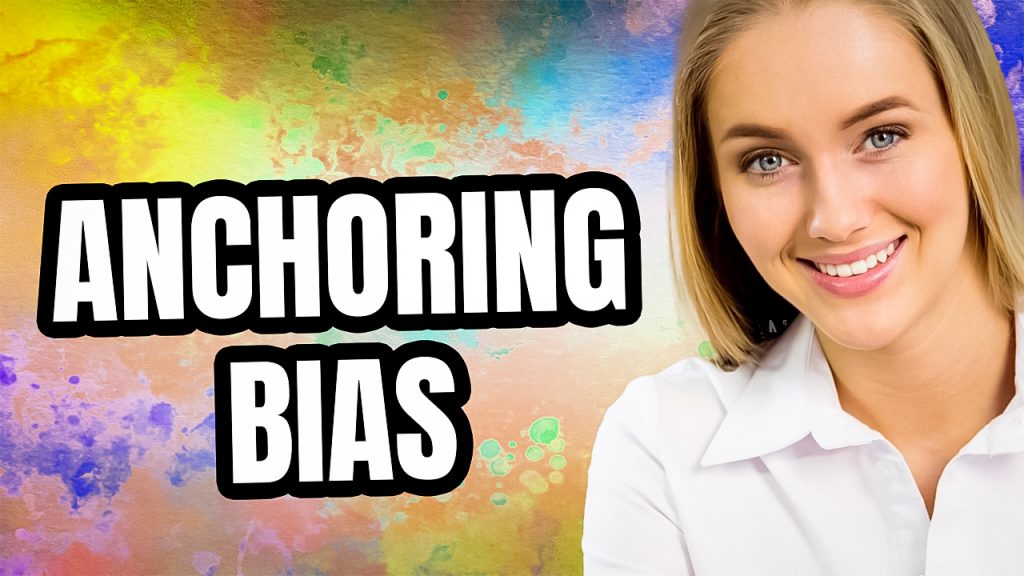What is Anchoring Bias?

Anchoring bias is a cognitive bias that describes the tendency for people to rely too heavily on
the first piece of information they receive when making subsequent judgments or decisions. This
bias can occur in a wide range of contexts, from financial decision-making to medical diagnosis,
and it can have significant impacts on the quality of the decisions people make.
The term “anchoring bias” comes from the idea that the first piece of information people receive
acts as an anchor for their subsequent judgments. This anchor can be arbitrary or even
irrelevant, but it can still have a powerful effect on the way people think and make decisions. For
example, if a real estate agent tells a potential buyer that a house is priced at $1 million, the
buyer may start to evaluate the property based on this initial price point, even if the actual value
of the property is significantly lower or higher.
Anchoring bias has been extensively studied in psychology and behavioral economics, and
there are a few key factors that seem to contribute to its occurrence. One important factor is the
way our brains process information. Our brains are wired to use shortcuts or heuristics to make
decisions quickly, and anchoring bias is one example of a heuristic that can lead us astray.
Another important factor is the context in which we receive information. If we receive information
in a context that suggests it is important or meaningful, we are more likely to anchor on that
information and use it to guide our subsequent judgments.
There are a number of different types of anchoring bias that have been identified in the
literature. One common type is called “numerical anchoring,” which occurs when people use a
specific number or range of numbers as an anchor for subsequent judgments. For example, if a
doctor tells a patient that their blood pressure is 140/90, the patient may start to evaluate their
overall health based on this specific number, even though there are many other factors that
contribute to overall health.
Another type of anchoring bias is called “emotional anchoring,” which occurs when people
anchor on emotional cues or signals. For example, if a news article about a crime uses
emotionally charged language to describe the perpetrator, readers may be more likely to anchor
on these emotions and view the perpetrator as more dangerous or threatening than they
actually are.
There are also cultural factors that can influence the occurrence of anchoring bias. For example,
in cultures where negotiation is common, people may be more likely to anchor on the initial offer
made by the other party in a negotiation. In cultures where deference to authority is highly
valued, people may be more likely to anchor on the opinions or recommendations of experts or
authority figures.
So what are some of the consequences of anchoring bias? One of the biggest is that it can lead
to poor decision-making. When people anchor on irrelevant or arbitrary information, they may
end up making decisions that are not based on the most important or relevant factors. For example, if a job candidate is evaluated based on their appearance or first impression, rather
than their skills or experience, the employer may end up hiring someone who is not the best fit
for the job.
Anchoring bias can also lead to problems in negotiations. If one party anchors on a specific offer
or price point, they may be less willing to consider other offers or negotiation points, even if they
are more advantageous or fair. This can lead to stalemates or breakdowns in negotiations that
could have otherwise been resolved.
Finally, anchoring bias can also have implications for public policy and decision-making. If
policymakers anchor on specific assumptions or values, they may be less willing to consider
alternative viewpoints or evidence that challenges those assumptions or values. This can lead
to policies that are ineffective or even harmful.
So what can be done to mitigate anchoring bias? One strategy is to be aware of the bias and
actively work to avoid it. This may involve taking time to gather all relevant information before
making a decision, and consciously considering how different factors should be weighted in the
decision-making process. It may also involve seeking out diverse perspectives and sources of
information, to avoid being anchored on a single point of view.
Overall, anchoring bias is a common and pervasive cognitive bias that can have significant
impacts on the quality of decision-making. By being aware of this bias and actively working to
avoid it, individuals and organizations can make better decisions and achieve better outcomes.
This Post is Brought To You By BetterHelp